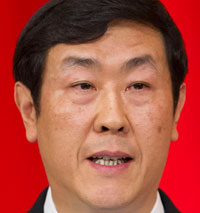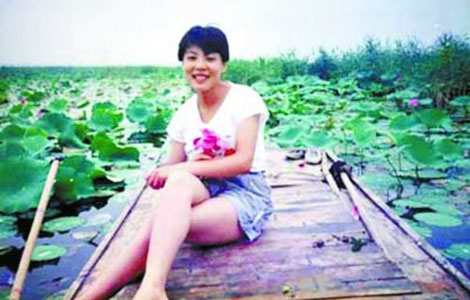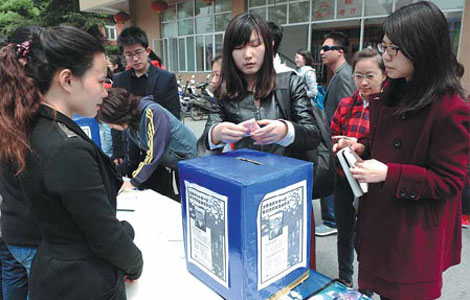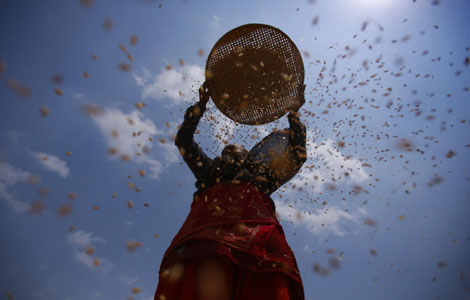Lawyers get an advocate
Updated: 2013-05-08 02:46
By Zhao Yinan (China Daily)
|
|||||||||||
Respect to attorneys vital to deter wrongful conviction, top judge says
A top judge's call to boost lawyers' role at courts will help reduce wrongful convictions, legal experts said.
 |
|
Shen Deyong, vice-president of the Supreme People's Court |
Shen Deyong, vice-president of the Supreme People's Court, has called on judges to respect the role of lawyers, especially defense lawyers, who are part of the legal community and can help judges avoid handing down wrongful verdicts.
"We should fully understand that lawyers are an integral part of the legal community, an ally of the courts and an irreplaceable force in preventing wrongful convictions," Shen said in an article published on Monday in People's Court Daily, a newspaper affiliated with the top court.
"It is even preferable to spare guilty people than to hand down wrongful punishment to the innocent," he said.
In the article entitled How to Prevent Wrongful Convictions, Shen said the Criminal Procedure Law, which stipulates lawyers have the right to protect the legal rights of the defendants based on facts and laws, is designed to balance the power between the defendants and the prosecutors, to prevent a presumption of guilt.
"Defense lawyers are the most reliable power in courts for upholding justice," he said.
Experts said the remarks re-assess lawyers and their role in court hearings, and may reverse the current situation under which the role of lawyers is often undermined.
Hou Xinyi, a law professor at Nankai University in Tianjin, said the philosophical change of putting law first and respecting lawyers may compel courts to review controversial cases, which have allegedly imprisoned the innocent and dampened judicial credibility.
"The public is expecting an active response and re-examination of the controversial convictions, and this is a useful way for the courts to improve their image and restore people's confidence in the judicial system."
It also means lawyers, especially defense attorneys, will be able to play a bigger and more active role in court hearing, he said.
Although the Criminal Procedure Law was amended this year to include more rights for lawyers, many criminal defense lawyers have complained of unfair treatment in the courtroom. Lawyers are held responsible for falsification of evidence, although prosecutors are exempted from it.
"The distrust between lawyers and judges has evidently grown in recent years," Hou said.
Heated debate arose after lawyer Wang Quanzhang was judicially detained for disrupting order in court in Jingjiang, Jiangsu province, in early April.
Wang was later released after three days, instead of the original 10-day sentence.
The court said in a statement on its website that Wang has seriously disrupted order in court and was legally detained. "But since the detention has achieved the disciplinary effects, further detention is not necessary, so the court has decided to grant Wang early release," it said.
Speculation has swirled that the court abused its power, as the statement failed to specify what in Wang's behavior disrupted order in the court.
Shen's remarks about giving more support to defense lawyers and greater protection to defendants to prevent wrongful convictions is part of the steps that have been taken by the Supreme People's Court to improve its public image.
Zhou Qiang, president of the Supreme People's Court, has also made repeated calls about upholding the rule of law and has held meetings to solicit opinion on how to build the judiciary's credibility among law professors and lawyers.
Many have expected the 53-year-old judge to improve the judicial system since he became president of the top court in March.
Zhou, who has extensive experience in the judicial system, has taken a series of measures.
The top court for the first time broadcast live online its news conference on Friday.
In his public comments since becoming top judge, Zhou has spoken repeatedly about justice and transparency.
During a trip to Shaanxi province in early April, Zhou said judicial justice is the "lifeline" of courts, and judges should be subject to the supervision of the public and the media.
He Bing, a law professor at China University of Political Science and Law, said Zhou's remarks have given him an impression that the top court is going in the right direction.
But Hou Xinyi from Nankai University said, "I expect some concrete steps to be taken."
GLANCE
Recent court reversals
On March 26, the Zhejiang Provincial High People's Court reversed a 2004 ruling, after new DNA evidence linked another man, now dead, to the rape and murder of a woman. Zhang Gaoping, 47, who received a 15-year prison term, and his nephew Zhang Hui, 38, who received a death sentence with a two-year reprieve, were acquitted after 10 years in prison. The police may have used illegal methods to obtain a confession, the court said when it reversed its 2004 ruling.
Zhao Yanjin, who was convicted of murdering a 6-year-old boy in 2001, was released from prison in February, 20 months after the conviction was overturned for lack of evidence. Zhao, who has been sentenced to life imprisonment twice and acquitted twice in the past 12 years, spent more than 3,300 days in prison.
A court in Pingdingshan, Henan province, on April 25 overturned the wrongful conviction of Li Huailiang, who had been imprisoned for 12 years. Li was convicted of murdering a 13-year-old girl in 2001. Li was acquitted because the evidence was not enough to support the conviction.
Related Stories
Supreme court urges respect to lawyers 2013-04-25 21:00
Lawyers see prospects in Pudong 2013-04-16 14:59
Letter helped turn lawyer into a sports king 2013-04-19 08:44
Defense lawyers face uphill battle 2013-01-07 07:41
Rules ensure lawyers' access to suspects 2012-12-28 20:13
Today's Top News
Detention of petitioners denounced
Lawyers get an advocate
Pentagon accusation on China's military rejected
Foster homes for homeless children
Public hearing to discuss taxi fare increase
21 Party officials, SOE managers disciplined
Clarity on tax evasion needed, lawmakers told
Visa policy to attract global tourists
Hot Topics
Lunar probe , China growth forecasts, Emission rules get tougher, China seen through 'colored lens', International board,
Editor's Picks

|

|

|

|

|

|





